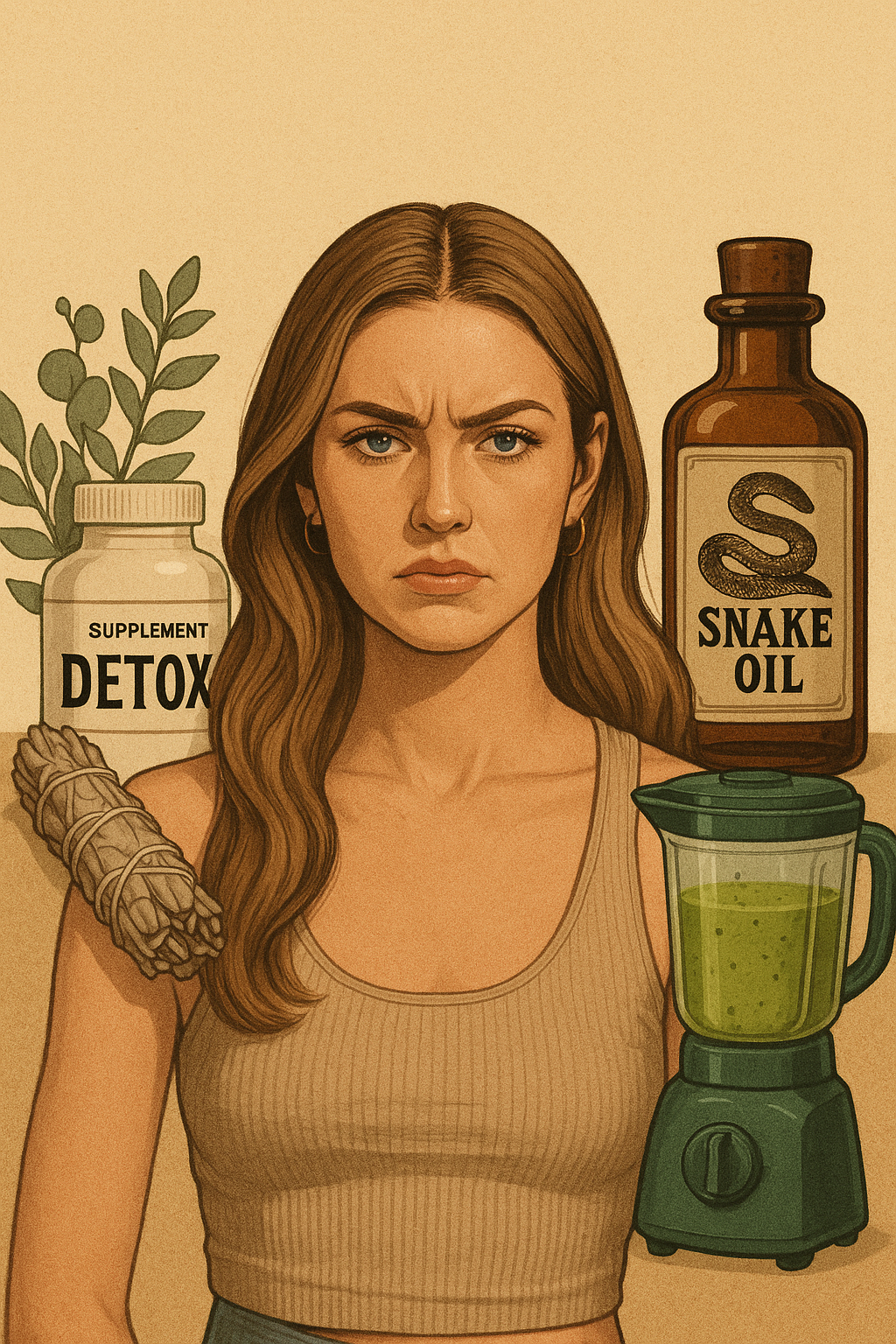They speak in soft tones. They wear beige linen. Their backgrounds are full of eucalyptus bundles and Himalayan salt lamps. And they’ll fix your gut health, balance your chakras, reverse aging, and detox your soul — all for just $49.99 a month and your complete medical trust.
Welcome to the pastel-colored, moon-charged world of wellness influencers: the modern snake oil salesmen dressed in matching athleisure sets, peddling spirituality with a side of pseudoscience.
The Rise of the Pretty Pseudoscientist
Once upon a filtered time, influencers were harmless — just pretty faces selling face masks and protein shakes. But now? The boundaries between beauty tips and medical advice have blurred faster than a skin-smoothing app.
These influencers have evolved into “healers,” “hormone whisperers,” and “quantum coaches” without so much as a community college bio class under their belt. They're slinging anti-vax conspiracy theories, dangerous fasts, and absurd supplement stacks with more conviction than a surgeon general.
Credentials? Who needs ‘em when you’ve got a six-pack and a podcast.
The Business of Bunk Science
Let’s be clear: this isn’t just annoying. It’s dangerous.
One so-called wellness guru with over a million followers claimed parasites were the cause of all illness — and prescribed a brutal “cleanse” involving turpentine and raw garlic. Another advised followers to skip sunscreen because “sunlight is medicine.” Several have demonized antidepressants and convinced their audiences to quit cold turkey in favor of “reparenting breathwork.”
The most tragic part? Many followers listen. And suffer the consequences.
Marketing Masquerading as Medicine
It’s a perfect storm. The influencer offers “authenticity.” The product offers “healing.” The algorithm rewards outrage. And all of it sits on a foundation of anecdotes and vibes.
These creators build massive, cult-like communities where questioning their advice is “low vibe” or “toxic.” Dissenters get blocked. Critics are labeled “asleep.” And the pyramid of followers, clients, and recruits grows — all under the illusion of empowerment.
Except it’s not empowerment. It’s manipulation in a coconut-scented disguise.
A Culture of Complicity
Platforms rarely intervene. As long as content doesn’t explicitly break terms of service, the likes keep rolling in. And the FTC? Good luck keeping up with every influencer pushing unregulated miracle powders from Bali.
Meanwhile, real healthcare professionals — the ones in lab coats, not crop tops — are left trying to clean up the mess in ERs and mental health clinics.
How to Spot a Scamfluencer
Uses vague phrases like “I’m not a doctor, but…”
Sells their own branded supplement line
Claims “science can’t explain this yet”
Promises to “fix” your hormones with fruit
Charges hundreds for Zoom “healing sessions”
Sound familiar? You may be dealing with a reiki-certified danger to public health.
Conclusion
Wellness is a billion-dollar industry with a morality problem. Behind every green smoothie and gratitude post could be an influencer dangerously out of their depth — or worse, knowingly exploiting yours.
So next time your favorite fitspo tells you Big Pharma is evil and celery juice cures cancer? Pause. Question. And maybe… call an actual doctor, darling.

